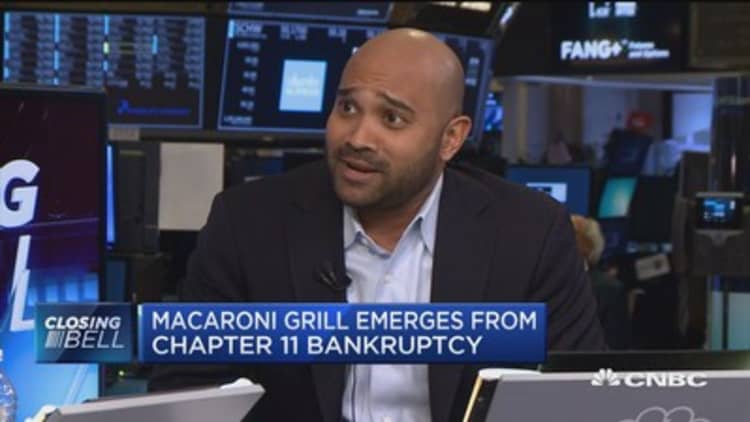
Macaroni Grill CEO Nishant Machado said Thursday the casual dining restaurant chain could actually benefit from President Donald Trump's trade dispute with China.
Machado said in a "Closing Bell" interview the company has seen a minimal impact from tariffs but nothing significant. On Thursday, a new round of U.S. tariffs on $16 billion worth of Chinese imports kicked in, prompting an equivalent retaliation from Beijing.
The latest American tariffs — which come on the back of $34 billion worth of Chinese goods that were implemented in July — have spurred U.S. importers to place additional orders to be shipped and delivered ahead.
"If anything it's going to benefit us because of all the tariffs China has put on produce," said Machado, of Mackinac Partners, who serves as CRO and CEO of Macaroni Grill.
Tariffs from China are causing a pile-up of some supplies in the U.S., driving down prices for domestic buyers.
"So, down the road, depending on how this all shakes out, I think it would benefit us. But time will tell," he added.
In February, the restaurant chain announced its emergence from Chapter 11 bankruptcy. The company had filed for bankruptcy protection late last year with a plan to slash its debt as well as reorganize its business.
Now, Machado said management is looking to stabilize the business and build a platform. "By platform, I mean systems, people and process," Machado said.
"We've really focused on doing that. To get the business back on track. But also go through and build growth through acquisitions," he said, adding the company is being careful to not "sink the ship."
— CNBC's Huileng Tan contributed to this report.


